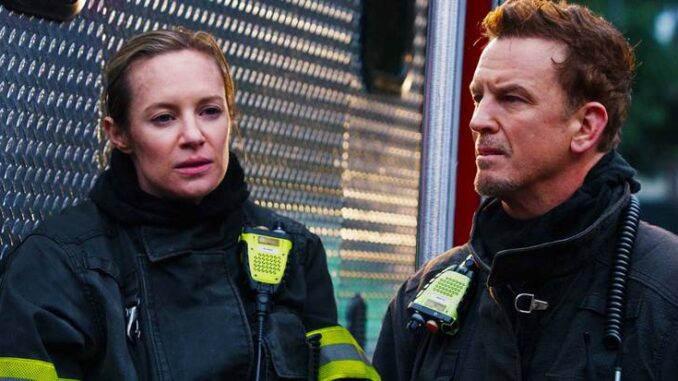
Kate Beckett. The name alone conjures an image of formidable resolve, a woman carved from steely determination and a singular, relentless pursuit of justice. For seasons, her character arc on Castle was defined by a magnificent, yet often self-destructive, strength – a fortress built around the raw wound of her mother’s murder. She was a solitary warrior, brilliant but prone to recklessness, her instincts honed by pain rather than prudent strategy. Yet, a specific, pivotal moment “on the call” transcended her ingrained patterns, revealing a profound and remarkable growth: her conscious, deliberate choice of responsibility over impetuous heroism.
Early Beckett was a study in controlled chaos. Her brilliance as a detective was undeniable, but it was often fueled by a personal vendetta that blurred the lines of professional conduct. She pursued leads with a fierce, almost desperate intensity, frequently placing herself in harm's way without full consideration for her own life or the ripple effect on her team. Her walls were not merely high; they were crenellated battlements, designed to keep vulnerability out and prevent anyone from getting close enough to be hurt, or to hurt her. She grappled with trust, often preferring to carry the weight of the world on her own shoulders rather than distribute it amongst her capable colleagues. Her leadership, though nascent, was characterized by a tendency to lead from the front, even if it meant sacrificing herself.
The moment of transformation, subtle yet seismic, often occurs in a high-stakes scenario – a hostage situation, a ticking bomb, a volatile standoff. Imagine a call where the stakes are unbearably high: a child held at gunpoint, perhaps, or a suspect threatening to detonate a device in a crowded public space. The familiar adrenaline would surge through Beckett, a primal urge to act, to burst through the door, weapon drawn, to confront the threat directly. This was her default, her almost instinctual response to injustice and danger, shaped by years of pushing past fear for the sake of a perceived, immediate win. Her mind, in her earlier days, would already be calculating the fastest, most direct route to the target, disregarding the need for backup, for strategic assessment, for a measured approach.
But on this call, something fundamentally shifts. As the intel pours in, as her team, Ryan and Esposito, look to her for direction, as Castle stands by, a silent witness to her internal struggle, a different process unfolds. Her eyes, once prone to a singular, tunnel-vision focus, now sweep the scene, absorbing every detail: the tremor in the hostage's stance, the unpredictable glint in the suspect's eyes, the precariousness of their position. The old Beckett would have felt the familiar surge of adrenaline, the urge to act, to charge in, consequences be damned. But something different happens this time.
Instead of ordering a breach, she holds up a hand, calling for a tactical pause. Instead of rushing the door, she issues commands for perimeter containment, for a negotiator to be brought in, for intelligence to be cross-referenced. She articulates a plan, not born of impulsive bravery, but of considered strategy. She defers to the sniper team's superior vantage point, collaborates with the bomb squad, and, most crucially, waits. She waits for the right moment, for the least collateral damage, for the highest probability of success not just for herself, but for everyone involved. She doesn't just see the suspect and the victim; she sees the labyrinthine network of risk, the lives of her officers, the potential for public panic, the long-term implications of a botched operation.
This act of restraint, of deliberate, strategic patience in the face of overwhelming pressure, is the hallmark of her remarkable growth. It demonstrates a profound shift from a personal quest for vengeance to a professional responsibility for the greater good. It shows her transition from a lone wolf to a true leader, one who trusts her team, utilizes their specialized skills, and understands that true strength lies not in isolated heroics, but in coordinated, intelligent action. Her impulse control, once a constant battle, is now a finely tuned instrument of her judgment. She has learned to separate her personal demons from her professional duty, to channel her fierce protectiveness into considered, effective action rather than reactive force.
Beckett showing responsibility on that call isn't just about making the "right" decision; it's about the internal battle she wins to enable that decision. It proves she has processed, if not fully healed, from her trauma, allowing her to lead with clarity and empathy rather than allowing her past to dictate her present. It's the moment the fortress walls don't crumble, but rather transform into the sturdy foundations of a fully realized detective and a deeply responsible human being – a testament to a character who evolved from merely surviving to truly thriving, leading not just by example, but by profound, intelligent care.